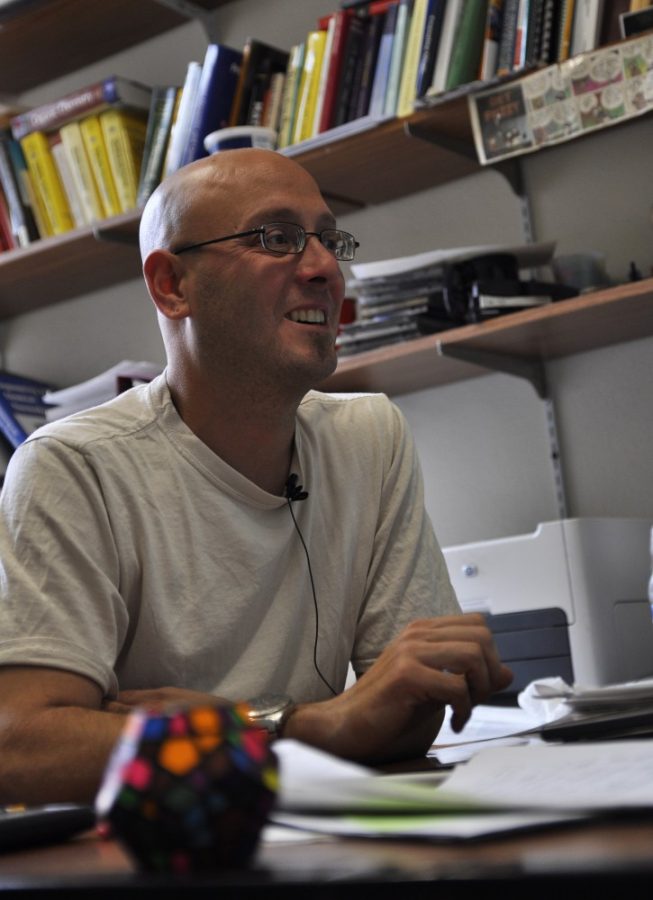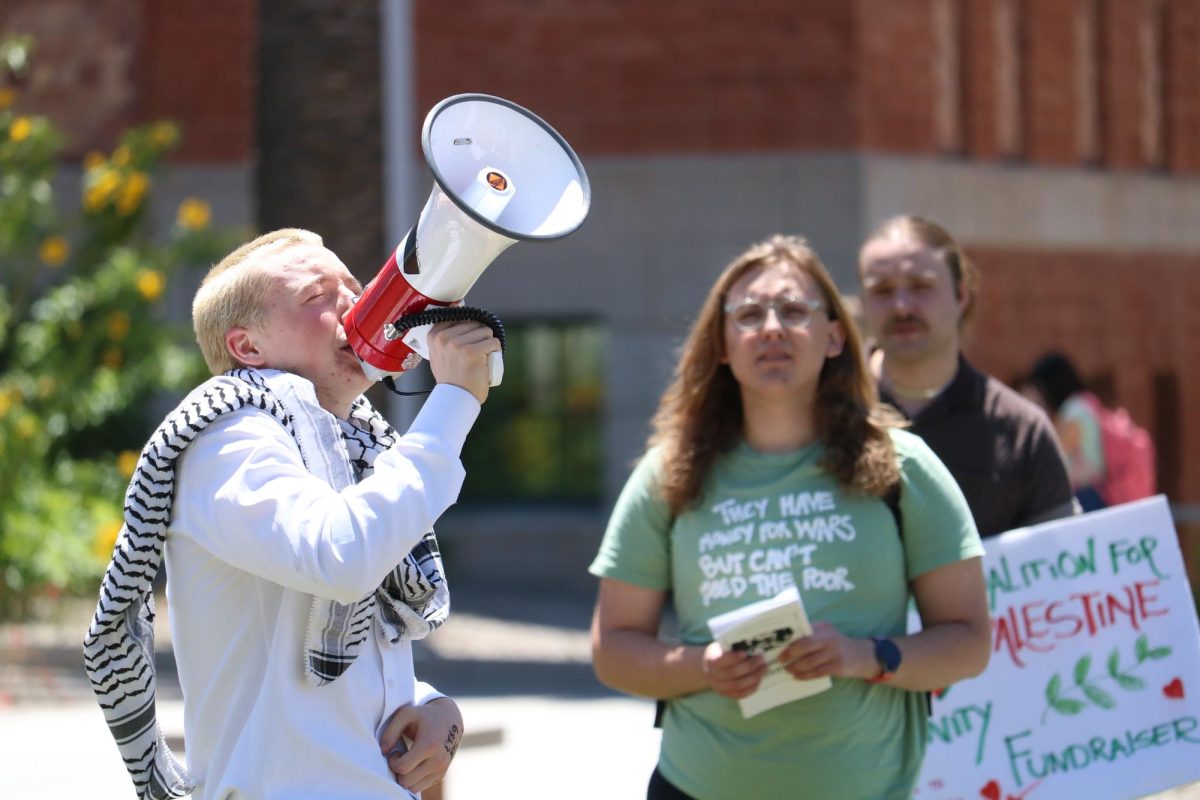Two UA professors were awarded for their outstanding ability to teach, conduct research and mentor undergraduates all at the same time.
Judith Bronstein, a professor of ecology and evolutionary biology, and Paul Blowers, an associate professor of chemical and environmental engineering have been both named the 2012 University Distinguished Professors.
Judith Bronstein
As an ecology and evolutionary biology professor, Bronstein decided to focus her research on the cooperation in nature and look specifically at the relationship between animals and plants. Bronstein compares people’s dependence on the ecosystem with the needs of the ecosystem to find out how plants and animals can best coexist.
“It’s neat to take what I know from us as humans and take that to inform our understanding of nature as a whole,” she said. “You start to see patterns that no one has seen and I am trying to pull the whole thing together.”
Bronstein’s lab is open to all students, regardless of their GPA. Her teaching helps students evaluate evidence to understand how interactions function due to human change in the landscape.
Because of funding cuts, Bronstein is in her last year of directing a $3 million, five-year program called Biodiversity from Molecules to Ecosystems. The program, funded by the National Science Foundation, has allowed 52 graduate students to bring their knowledge about ecology, evolution, biodiversity and conservation into Tucson’s public schools. These students help educate local students.
“More of our students want to teach and they have a social commitment to their faculty,” Bronstein said, “and the students want to bring their outreach expertise into the classrooms.”
Bronstein is working on research that aims to answer the question, “When you cooperate with others, when do you cheat and how do you sense that you are being cheated to then dissolve the relationship?” She also became the first female editor-in-chief of the American Naturalist Journal in 120 years.
Paul Blowers
“Shocked” was the word that Blowers used to describe how he felt upon hearing of the recognition. Blowers said there are many approaches to a successful academic career, but this is different from others.
“If I teach something in a way that I don’t like, I reengineer it and redesign it,” Blowers said. “I reconfigure the room and the technology to make it better.”
When Blowers was initially searching for a job as a professor, he applied to 120 universities. Because he had no interest in the UA, he said, he scheduled his interview with them first for practice. But by the end of the interview, he realized that the UA would best fit his career.
When his son was still young, Blowers said he gave lectures with him in a chest carrier.
“Most of the faculty in my department does research, they teach, have families and enjoy their hobbies,” Blowers said. “It’s not like you can only do one thing, and that’s when I realized I can do it all at the UA.”
Blowers also received the Five Star Faculty Award, an honor given by students, in addition to the Leicester and Kathryn Sherrill Creative Teaching Award, given by the UA Foundation. The UA College of Engineering named Blowers a da Vinci Circle fellow in 2010, a two-year recognition with a $10,000 prize for aiding undergraduate research. A panel of philanthropists pick two students and one faculty winner for the award, and Blowers was chosen over 124 College of Engineering faculty members.
Jennifer Ramin, a sophomore studying chemical and environmental engineering, is working closely with Blowers on lifecycle analysis of algae biofuels.
“Working with Blowers is very empowering because he gives you something within your reach to work on and sets you loose, and then occasionally he checks up to adjust your path,” Ramin said.
Blowers said he is interested in all things related to sustainability. He is also looking into which chemical engineering principles can predict certain environmental impacts, as well as the global warming potential of certain chemicals.
“My motivation will always be to be a better teacher, but now the challenges have become more internal set,” Blowers said. “I have done everything I can in a classroom as best as I can.”









